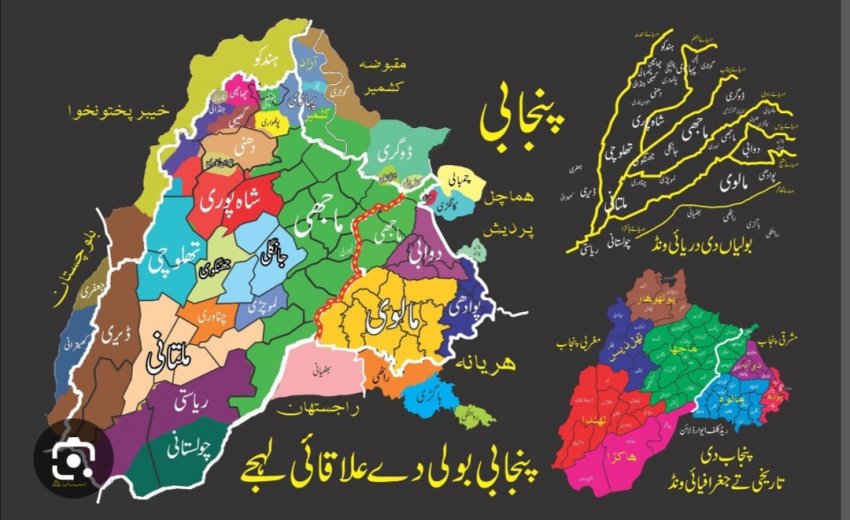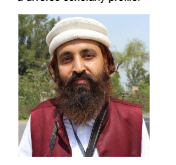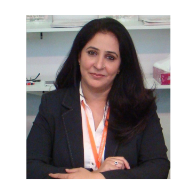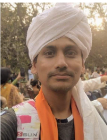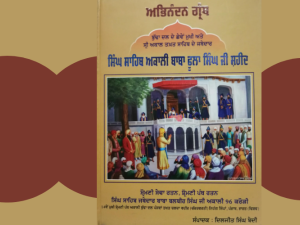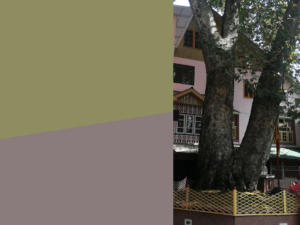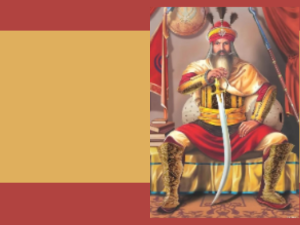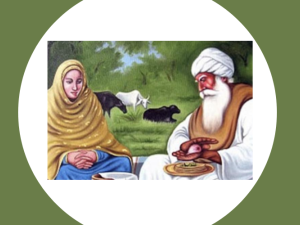In the ever-evolving digital landscape of Pakistan, social media networks have emerged as influential platforms shaping the nation's virtual discourse. As of August 2023, facebook.com reigns supreme, holding the coveted position as the most visited social media network in Pakistan, with whatsapp.com following as the runner-up, and instagram.com securing the third spot. This digital hierarchy reflects the dynamic nature of online interactions in a country that boasts a diverse linguistic and cultural tapestry. However, the journey of social media in Pakistan has not been without its twists and turns. Early decisions on social media by the authorities underscored the delicate balance between freedom of expression and the state's concerns over security and misinformation. Despite these challenges, Pakistan's social media landscape has continued to thrive. In 2022, an average of 72.9 million active social media users engaged on these platforms each month. This staggering number constitutes approximately 31.5% of the nation's total population, underscoring the significance of social media as a tool for communication, expression, and connectivity in Pakistan.
Pakistan, a multiethnic and multilingual nation, boasts a rich linguistic tapestry, with around 72 languages spoken across its diverse regions. While Punjabi claims the title of being the language of 44% of Pakistanis, it holds no official status in educational or governmental settings, where Urdu predominates. This linguistic diversity exemplifies the complex interplay between identity, culture, and governance in Pakistan. In this digital milieu, Facebook, YouTube, WhatsApp, and Instagram stand as the pillars of social media engagement. Facebook reigns supreme with over 40 million users, while YouTube and WhatsApp also enjoy substantial user bases of over 20 million each. These platforms serve as virtual town squares where Pakistanis converge to share stories, and opinions, and connect across geographical divides. Delving into the linguistic landscape, Pakistani Punjabi, also known as Lahnda, exhibits intriguing influences from Persian, Arabic, and Urdu. Notably, it uses the Shahmukhi script, setting it apart from its Indian counterpart. Language in Lahore, a major city in Pakistan, has maintained relative stability despite the influx of diverse linguistic communities. However, institutional education predominantly emphasizes Urdu and English, the official languages, sidelining indigenous languages like Punjabi.The social fabric of Pakistan is woven with religious diversity, with Punjabi Muslims forming a majority of the population . The nation's religious mosaic includes Sunni Muslims, Shia Muslims, Ahmadiyya Muslims, Hindus, Sikhs and Christian minorities. This religious diversity underscores the need for harmonious coexistence in a complex socio-religious landscape.
In Pakistan, there exists a thriving community of dedicated individuals who have made it their life's mission to champion the cause of Punjabi language, culture, heritage, and literature. These passionate advocates, driven by a deep-seated love for their roots, have embarked on a journey to preserve and propagate the rich tapestry of Punjabi heritage.
One such luminary is Shahid Shabbir, a scholar and activist whose commitment to the cause has been unwavering.
Born in Lahore in 1975, Shahid has a profound understanding of the Punjabi language and its intricate nuances. His scholarly pursuits have led to numerous posts on social media , both in academia and the public domain, shedding light on the linguistic and literary treasures of Punjab.Shahid Shabbir, a dedicated Punjabi Historian from Lahore, began his career as a Garden Supervisor in Islamabad in 2001 and continues to serve in the same department. His academic journey includes a BA and a master's in history, completed in 2015. Shahid's passion lies in researching non-Muslim heritage in Pakistan, Sikh and Hindu history, and he has discovered and highlighted over 1200 historical sites in Punjab, KPK, and Kashmir. He's renowned for his digital posts and founded various groups to promote heritage preservation.His work gained international recognition, leading to presentations and projects in the USA, Australia, Malaysia, and Canada. Shahid has delivered over 164 lectures, earned numerous awards, and is affectionately known as a "Peace Ambassador" and "Aman ka Safeer." Despite offers for a Ph.D. from prestigious universities, he awaits permission from his department to pursue his dream of becoming a Punjabi History Doctor.
Purva Masood, born on March 26, 1998, in Pakpattan, India, pursued a BS in Mathematics at Lahore Leads University.
In April 2020, during a lockdown, she launched her YouTube channel "Jeevay Sanjha Punjab." Inspired by Sikh culture and historical sites, she started by visiting Tilla Nanaksar, a site significant to Guru Nanak Sahib Ji and Baba Farid Ji. This experience led her to learn Gurmukhi and embark on a mission to preserve Sikh heritage. Her channel focuses on four main projects: "Tangh Purane Pind Di" (Ancestral Village Stories), "Visardi Virasat" (Forgotten Heritage), "Gurmukhi-Shahmukhi Sikhho" (Teaching Scripts), and "Dastaan-e-Punjab" (Punjab's History). "Jeevay Sanjha Punjab" has produced 200+ history videos and taught Gurmukhi/Shahmukhi to over 2500 students.
Mirza Safdar Baig, born on July 22, 1977, in Jhelum, Punjab, Pakistan, who boasts a diverse scholarly profile.
He began his education at Government High School, Jhelum, and later pursued Uloom Ul Arabic at Allama Iqbal Open University. As a registered member of Hikmat Council of Pakistan, he's involved in alternative healing practices. With eight years as a lecturer at Punjab College of Technology, Jhelum, he's been a dedicated educator. Beyond academia, Mirza Safdar Baig is a poet, historian, historiographer, and collector of coins. He's also passionate about herbalism. His YouTube channel reflects his commitment to sharing knowledge. Remarkably, he has actively engaged in social media for fourteen years. Mirza Safdar Baig is a versatile scholar with a rich educational background, a teaching career, and a deep involvement in various cultural and historical pursuits. Mirza Safdar Baig, an accomplished scholar and enthusiast, has not only diversified his scholarly pursuits but also engaged in the documentation and preservation of cultural heritage. His endeavors include both photography and the creation of comprehensive written narratives, encompassing an array of historic sites, such as Gurdwaras, Samadhies, and Temples, notably within the regions of Kartarpur Sahib, Jhelum, Gujranwala, Sialkot, Mandi Bahaudin, Rawalpindi, Gujrat, and Lahore. Through his work, he contributes significantly to the preservation of heritage, ensuring that these sites and their stories are shared with current and future generations, thus perpetuating the legacy of these invaluable landmarks.
Noshaba Shehzad (Noshaba Shehzad Masud) is a seasoned agriculturist and marketer with 18 years of experience, specializing in horticulture. She was born on January 10, 1984, originally from Talagang, Punjab, and raised in Islamabad. Daughter of the late M. Siddique Alvi, Advocate Supreme Court, and Bilqees Alvi, a homemaker. Married to Syed Shehzad from Lahore, whose father was the late S. M Masud, a renowned politician and former Federal Law Minister. In Lahore, Noshaba found a vibrant social circle that ignited her passion for heritage preservation. Since 2012, Noshaba has actively used social media to promote agricultural issues, photography, and writings. In 2018, her shift to Lahore led her to like-minded individuals who further fueled her interest in heritage, particularly historical gurdwaras. She initiated the "Pule Wisre Gur Asthan" project, advocating for Sikh communities to engage with their legacy, fostering awareness and visits to these iconic sites. Her belief is that through these efforts, the world can better understand Sikh history and Punjab's rich cultural tapestry. Noshaba strongly emphasizes the interconnectedness of agriculture, heritage, and culture, viewing them as integral components that unite people with their land and history. His career began as a Trainer/Consultant with Spectrum in 1999.
She holds an MBA in Marketing and Branding from Iqra University and has undertaken various professional courses. Nosh has made significant contributions to the international marketing of Shehzad Asia International, expanding its reach into several countries. In 2012, he established his company, SAPNA, focusing on fresh and organic food products. In 2021, he ventured into religious tourism. She has received awards, such as the United Nations Award by FAO, and is known for her dedication to agriculture marketing, training, and promoting growth. Her extensive qualifications, experience, and contributions make her a notable figure in the field of agriculture and marketing . Noshaba's deep interest lies in culture, heritage, and the history of saints, which she incorporates into her tours . She delivered lectures on Sikh heritage in Pakistan, both on the East and West Coasts. Additionally, she engaged with the Lahore Chamber of Commerce & Industry to promote Sikh tourism in Pakistan. Noshaba actively advocates for the preservation and renovation of historical Gurdwaras and Sikh heritage in Pakistan through various channels, including social media, writings, and government-level initiatives. Her scholarly focus centers on Sikh tourism and heritage in Pakistan, where she contributes significantly to the promotion and conservation of this rich cultural heritage.
Saba Pervaiz Kiyani
Saba Pervaiz Kiyani, a native of Pakistan, has devoted herself to a multifaceted journey deeply rooted in the rich tapestry of Punjab's culture and heritage.
Her vocation as a science teacher within the School Education Department of Punjab since August 2017 serves as a testament to her commitment to education and the dissemination of knowledge. Kiyani's academic background, holding a Bachelor of Science with Honors in Applied Microbiology, showcases her dedication to the field of science. However, her pursuits extend far beyond the confines of a classroom. Her notable contributions lie in her endeavor to orally preserve the history, heritage, and culture of the Sikh community in Pakistan through the medium of YouTube.This dedication to preserving the cultural legacy of Sikhs can be attributed to her profound admiration for the teachings of Guru Nanak Ji, the founder of Sikhism, and the Muslim Sufis such as Bulleh Shah, Waris, and Farid. These luminaries, with their emphasis on love, compassion, unity, and the oneness of humanity, have left an indelible mark on Kiyani's heart and soul.
Guru Nanak Ji's teachings, emphasizing selfless service, equality, and devotion to the divine, transcend religious boundaries and foster a sense of unity among all. Similarly, the Muslim Sufis of Punjab, through their poetry, music, and meditative practices, have championed universal love and tolerance, further inspiring Kiyani's commitment to connecting with the essence of humanity. Throughout her journey, Saba Pervaiz Kiyani has been humbled by the warm reception and support she has received from the Punjabi people, particularly the Sikh community. Their genuine appreciation for her work has stoked her passion for spreading the message of love, harmony, and mutual understanding among all communities. In the mosaic of Punjab's diverse cultures, languages, and traditions, Kiyani has discovered a harmonious blend that exemplifies the essence of coexistence. It is through the teachings of Guru Nanak Ji and the Muslim Sufis that she has gleaned the profound wisdom of cherishing and celebrating our diversity as a precious gift to humanity. Saba Pervaiz Kiyani's scholarly pursuit of preserving and promoting Punjab's cultural heritage, along with her unwavering commitment to education, stands as a remarkable testament to the power of knowledge, unity, and the shared values that bind us all as members of the human family.
BABAR JALANDHARI
Babar Jalandhari is a dedicated advocate for the Punjabi language and its promotion, particularly in Punjab, Pakistan. He hails from Kot Rad Kishan, District Kasur, Punjab, Pakistan.
His father, Sadiq Jalandhri, worked in the railways and has a connection to Jalandhar, which is significant to their family. Babar received his primary education in Kot Radha Kishan and furthered his studies in PattoKi Kasur, where he obtained a Diploma in Commerce. Remarkably, he is proficient in reading and writing in both Gurmukhi script and Hindi. Currently, Babar works in the Lahore Steel Industry, but his passion lies in advocating for the Punjabi language. He is actively involved in the "Punjabi Prachar Sath," an organization dedicated to the promotion of Punjabi language and culture. He serves as the general secretary of this organization and participates in various activities, such as organizing rallies and protests to raise awareness about the importance of the Punjabi language. Babar Jalandhari believes in the equality of all individuals and strives to ensure that minority voices and rights are heard and respected. He uses social media platforms to disseminate information and raise awareness about these issues. Through his dedication and efforts, Babar Jalandhari aims to elevate the status of the Punjabi language and culture, both locally and globally. His work is essential in preserving the rich linguistic and cultural heritage of Punjab, Pakistan.
Munir Hoshiarpuria (Munir Ahmad) was born in 1974. His extensive experience in administration, planning, and marketing export is impressive and made significant contributions to the organizations like
Superior Group of Colleges and Servis Shoes.
His contributions to Punjabi language and culture are also noteworthy, especially involvement in transliterations and publications.Being M.A. in Punjabi and an MBA in Marketing, demonstrates his commitment to both language and business.His additional skills as a radio artist, voice-over artist, writer, and researcher, along with his training program attendance, reflect a diverse set of talents and a dedication to personal development. Munir is a well-rounded professional with a strong commitment to his field and cultural heritage.
Immi Gul:
Immi Gul's academic background, having pursued a master's degree in Geography and History, reflects a strong foundation in the disciplines that are inherently connected to the study of heritage. Born in Saddar Cantt on 22nd October in the family of Agha Aziz Gul and raised in Lalkurti, Rawalpindi Cantt, he has been exposed to a locale steeped in historical significance.
Furthermore, being part of a family deeply entrenched in photography, with a photography business spanning from Gul Studio Dehradun, India to Lalkurti, Rawalpindi, suggests a hereditary passion for capturing moments in time. His quest for heritage and cultural exploration led him to travel to Delhi and Ajmer, India, in a dedicated pursuit of his passion. This journey of discovery extended to Pakistan, particularly in the regions of Punjab and Khyber Pakhtunkhwa (KPK). His photographic work stands as a testament to his commitment to preserving and showcasing the cultural heritage of the region.Notably, he focuses on documenting abandoned Gurdwaras and Hindu temples in Attock, Naushehra, Gujarkhan, Rawalpindi, Lahore, Kahuta, Kallar Syedan, and Kashmir. He showcases a dedication to the preservation of religious and historical sites that may otherwise be forgotten. His decade-long body of work can be explored on his Facebook page "Immi Gul's Photography." In sum, this individual's academic background, upbringing, and family legacy have converged to drive a profound and scholarly pursuit of heritage preservation through the lens of photography, offering a unique perspective on the cultural richness of his surroundings.
Ali Usman Beigh
Ali Usman Beigh, a Civil Engineer based in Lahore, Punjab, Pakistan, developed a deep passion for travel and photography from a young age.
He inherited this passion from his father, who captured the beauty of northern Pakistan with an Olympus camera in the 1970s and '80s. His father's adventures included visits to Swat Valley, Khunjerab, and Kalash. In 1990, Usman Ali's journey into the world of mountains began when his father took him and his younger sister to Abbottabad. From there, he went on to explore the basecamps of all eight-thousand-meter peaks in Pakistan and embarked on various mountain treks. Usman Ali's dedication to landscape photography spans two decades, and his work can be found under the name 'Ali Baig' on Flickr.Additionally, he nurtures a passion for architecture and historical buildings, making this blog a platform to showcase his expertise in both subjects, wildlife photography enthusiasts. His expertise extends particularly to Sikh architecture, a subject that has become his forte. He has painstakingly covered a significant portion of Sikh heritage in Pakistan, sharing his knowledge and insight through more than fifty meticulously crafted articles.
These promoters, among many others, have taken it upon themselves to ensure that Punjabi culture and heritage flourish in Pakistan. Their work extends beyond the realm of academia, as they organize cultural festivals, workshops, and seminars to engage the broader community in the celebration of Punjab's rich heritage. Through their persistent dedication and scholarly endeavors, they stand as beacons of hope for the preservation and promotion of Punjabi language, culture, and literature in Pakistan.
In conclusion, Pakistan's digital and linguistic diversity reflects its vibrant and multifaceted society. The nation's embrace of social media platforms, despite occasional challenges, highlights the importance of these networks in fostering connections and facilitating dialogue among its people. Pakistan's rich linguistic and cultural heritage, along with its religious diversity, adds layers of complexity to the intricate tapestry of the country's identity. The resilience and pride of Punjabis and Sindhis in preserving their cultural heritage, even in the digital age, stand as a testament to the enduring spirit of the Pakistani people.

